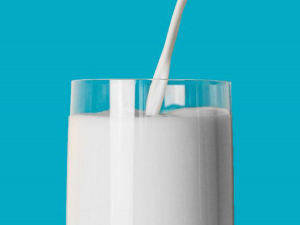Farmer fury
OPINION: The new Labour Government in the UK is facing the wrath of farmers. Last week thousands of farmers and their supporters converged in London protesting changes to inheritance tax for farmers announced in the Budget.
 Whereas liquid milk consumption may be declining, the production of value-added products is increasing.
Whereas liquid milk consumption may be declining, the production of value-added products is increasing.
Milk consumption in the United Kingdom has dropped by just under 50% since 1974.
The fall in UK’s per capita consumption of milk is greater than in the US — it experienced a reduction of 40% of per capita liquid milk consumption since 1975.
The UK findings were reported within an analysis by the Agriculture and Horticulture Development Board (AHDB).
According to AHDB, despite 98.5% of UK households still buying milk to drink, the average per capita consumption has fallen from 140 litres per year (2.7 litres per week), to just 70 litres (1.4 litres per week).
But it’s not all doom and gloom — AHDB reports that value-added dairy products like cheese are experiencing growth.
AHDB says that the volume of milk going into UK cheese has increase by 1.09 billion litres in the past ten years.
In contrast, the volume of milk going into liquid manufacturing has dropped by 720 million litres in the same timeframe.
Fonterra’s impending exit from the Australian dairy industry is a major event but the story doesn’t change too much for farmers.
Expect greater collaboration between Massey University’s school of Agriculture and Environment and Ireland’s leading agriculture university, the University College of Dublin (UCD), in the future.
A partnership between Torere Macadamias Ltd and the Riddet Institute aims to unlock value from macadamia nuts while growing the next generation of Māori agribusiness researchers.
A new partnership between Dairy Women’s Network (DWN) and NZAgbiz aims to make evidence-based calf rearing practices accessible to all farm teams.
Despite some trying circumstances recently, the cherry season looks set to emerge on top of things.
Changed logos on shirts otherwise it will be business as usual when Fonterra’s consumer and related businesses are expected to change hands next month.
OPINION: Fonterra may be on the verge of selling its consumer business in New Zealand, but the co-operative is not…
OPINION: What does the birth rate in China have to do with stock trading? Just ask a2 Milk Company.